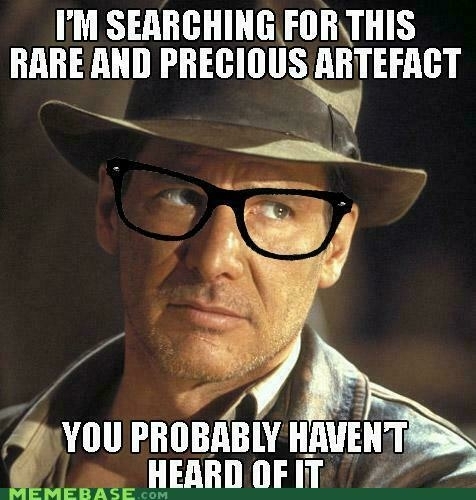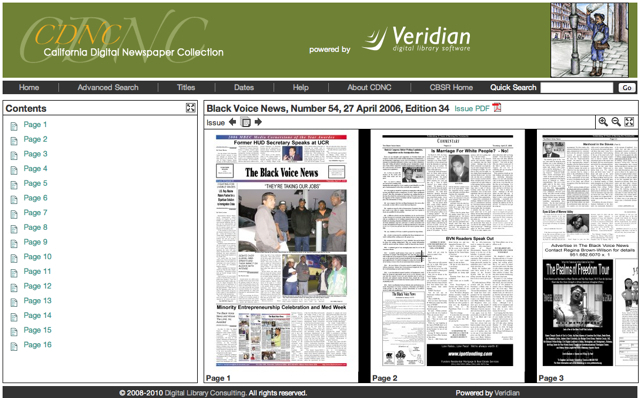Academia
My post on Wikipedia Edit-a-thons at NCPH Public History Commons
A few months ago, I wrote about a Wikipedia Edit-a-thon workshop at the UCR Library on the CDH (Critical Digital Humanities) and HGSA (History Graduate Student Association) websites. From these posts I was approached by Amy Tyson of the National Council on Public History's History@Work blog (Wayback Machine link). Amy covers the "In the Academy" section and she asked if I'd write about my experience at the workshop, which I happily agreed to. As it turned out, I also attended a THATCamp with a Wikipedia component, and I included that in my article as well. My post, "Editing in public: Online identity and the Wikipedia Edit-a-thon," is now live on the Public History Commons website.
The Impact of Wikipedia - Adrianne Wadewitz, 2012:
(Revised and republished April 19th, 2025)
Rewiring Class Emails and Student Interaction with Piazza
In a previous post I wrote about the experience of teaching an online class as a TA. One of the primary tools we used for the course was Piazza, and it was instrumental in shifting the burden of email to a more open and constructive arena.
Infectious Information: History and the Dissertation Quarantine
On July 22nd, 2013, the American Historical Association published to their blog a statement regarding the embargo of dissertations (Wayback Machine link). The suggestion was for digital embargo periods to be lengthened from around 1-3 years to 6 years, so that new PhD graduates could revise their dissertation manuscript for the purpose of creating a book for publication. As a significant revision of the dissertation, this book would then become a major component within the process of applying for tenure.
The back-end of online classes
In "Who is Driving the Online Locomotive," (Wayback Machine link) Rob Jenkins asks some pertinent questions about the force and direction of online education. There is definitely the feeling that something is coming, and those who aren't prepared will be lost by the wayside...or flattened by the train. However, this feeling of online education as the next-big-thing has been palpable for a couple of decades now. The latest gust of wind in the sails has been the infamous MOOC, but it's really more about the intersection of budget cuts and the ubiquity of social networking. It's also very unfortunate that there is usually little discussion of the differences between types of online classes – a MOOC with thousands of participants is a very different thing from a small online-class of 40 students.
Digital pedagogy and the online classroom
A few days ago I finished grading for an online summer class, The History of Latin America (HIST75V). I was the TA (teaching assistant) for Professor Juliette Levy, and this was the first time that either of us had conducted an online course. We’ve both taught the traditional in-class version of this course many times, and the opportunity to transform our in-class materials and teaching styles into an online presence was quite exciting. Professor Levy and I are both from the University of California, Riverside, and the course itself was hosted through UC Online. This class was an accelerated summer course, only 3 weeks long, and the LMS (Learning Management System) was Canvas. We also used Piazza for a student question & answer forum (I’ll write more about Piazza in another post).
Hipsters and nice-looking web pages
Unintentional Hipster Faculty (Wayback Machine link)
Making a nice-looking Web page is just too hard. The physicists across the street are teleporting matter! But yesterday I had to read a tutorial on how to vertically center an image.

(Revised and republished April 21st, 2025)
BAM Colloquium this Friday
Please join us for the Year-End Colloquium for Graduate Students in "BAM." Designated Emphasis in Book, Archive, and Manuscript Studies – http://bam.ucr.edu (Wayback Machine link)
Friday, June 7, 2013. 10:00am to Noon
English Department Conference Room (HMNSS 2212)
Presentations by Steve Anderson, Cori Knight, and Heather Van Mouwerik
Display of printshop projects by Rebecca Addicks, Ann Garascia, Cori Knight, Jessica Roberson, and Anne Sullivan
This will also be a celebration of the new Mellon Workshop Grant awarded to the Material Cultures of the Book Working Group – http://bookhistory.ucr.edu (Wayback Machine link)
(Revised and republished April 23rd, 2025)
Presenting in Seattle
I just returned from a history conference in Seattle. It was the annual meeting of the Pacific Coast Branch of the American Historical Association (Wayback Machine link). It was a great conference, well run, and very friendly.
I presented, "Processing the Suburbs: Gender, Technology, and Paperwork in Postwar America." At the heart of the paper is the need to provide a historical component to the Digital Humanities, and to better understand the historical foundations of modern digital culture.
(Revised and republished April 21st, 2025)
New Digital Humanities Minor at UCLA
I'm interested to find out more about this new program at UCLA. It seems like an excellent way to get students propelled into Digital Humanities projects. Students Should Embrace UCLA's New Digital Humanities Minor: Daily Bruin
(Revised and republished April 21st, 2025)
Born Digital newspaper project

This summer I've been working on the "Born Digital" project at the Center for Bibliographic Studies and Research (CBSR) at UC Riverside. The Born Digital project is an effort to help preserve small, weekly newspapers that are currently being produced in digital formats.
While digital technology has allowed modern newspapers to be created and distributed in new and exciting ways, it has also made the records of those newspapers more fragile. The Born Digital project helps newspaper publishers preserve, and make accessible to the general public at no charge, their digital files. As an online archive, the Born Digital project is a portion of the California Digital Newspaper Collection, which holds titles from 1846 to the present.
More information about the Born Digital project is available in this UCR news article: http://newsroom.ucr.edu/2667 (Wayback Machine link)
(Revised and republished April 21st, 2025)
Remember The Conference
I'm in San Antonio, Texas, today (right down the street from ) to present a paper at the PCA/ACA conference. It's a joint conference of the Popular Culture Association and the American Culture Association: pcaaca.org My paper is on the history of modern consumer culture and digital technology.
(Revised and republished April 21st, 2025)
Book Review: The Conquest of Nature
In our class tonight on Environmental History: "Nature, Space, and Place," we'll be discussing David Blackbourn's, The Conquest of Nature: Water, Landscape and the Making of Modern Germany. Our class posts discussion points and reviews on our student-powered blog. My review of The Conquest of Nature is below, and it was also on the class blog: Nature | Space | Place.
“A Patina of ‘Naturalness’”
Book Review: The Conquest of Nature: Water, Landscape and the Making of Modern Germany, by David Blackbourn.
The Conquest of Nature, written by David Blackbourn, is a masterful work of environmental history. Published in 2006, The Conquest of Nature details the transition of Germany from a conglomeration of kingdoms in the mid 1700s into a modern nation-state. Blackbourn’s ability to marshal a wide variety of sources, from census records to works of literature, gives The Conquest of Nature a robust and weighty feel. The sheer depth of Blackbourn’s research is impressive enough, but the scope of such a national history, especially one with such dark interludes during the twentieth century, lends a sense of awe. The history of modern Germany and the country’s national identity are entangled in the landscape of the region. By examining the relationship of technology and the environment, the negotiation between people and nature, and the contemporary perceptions of geographic position in an increasingly globalized worldview, the history of Germany is shown as a story of both hope and despair, promise and sacrifice.
The Shadow Scholar
The Shadow Scholar - The Chronicle Review - The Chronicle of Higher Education (Wayback Machine link).
...and two other related articles:
The Paper Market (Wayback Machine link)
(Revised and republished April 21st, 2025)
The Illustrated Guide to a Ph.D.
The Illustrated Guide to a Ph.D., Matthew Might, 2010:
You push at the boundary for a few years, until one day the boundary gives way.
(Revised and republished April 12th, 2025)